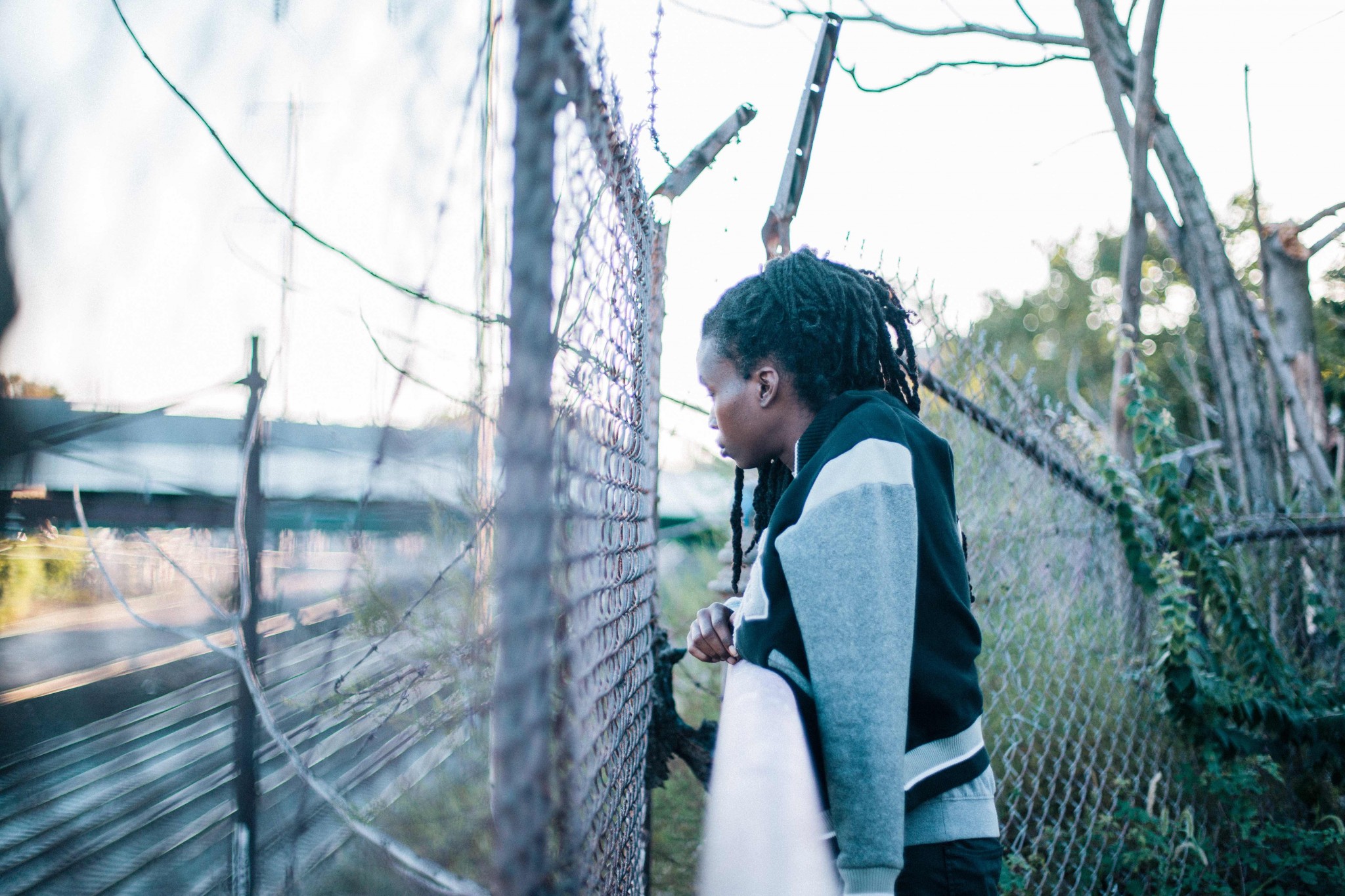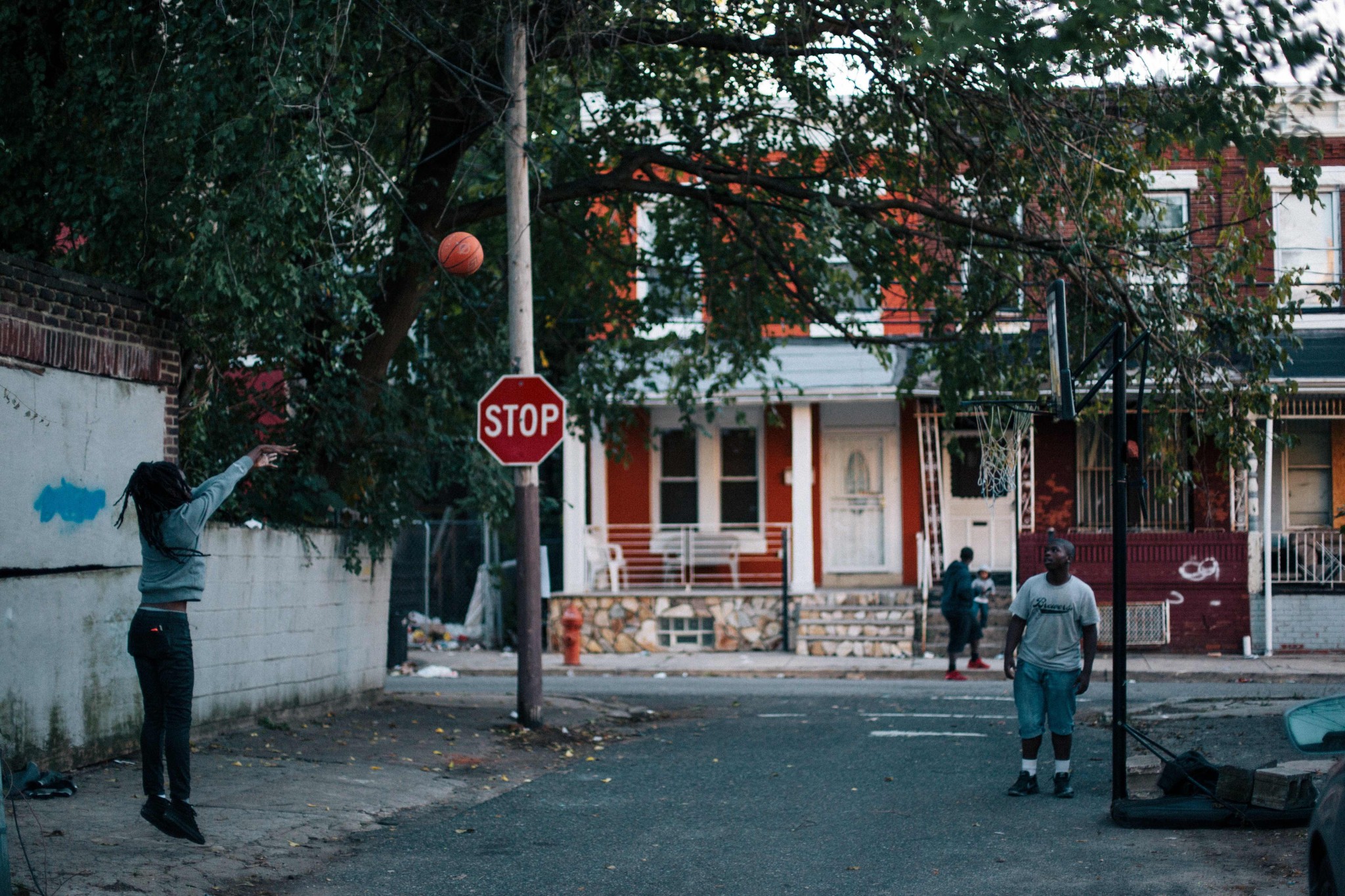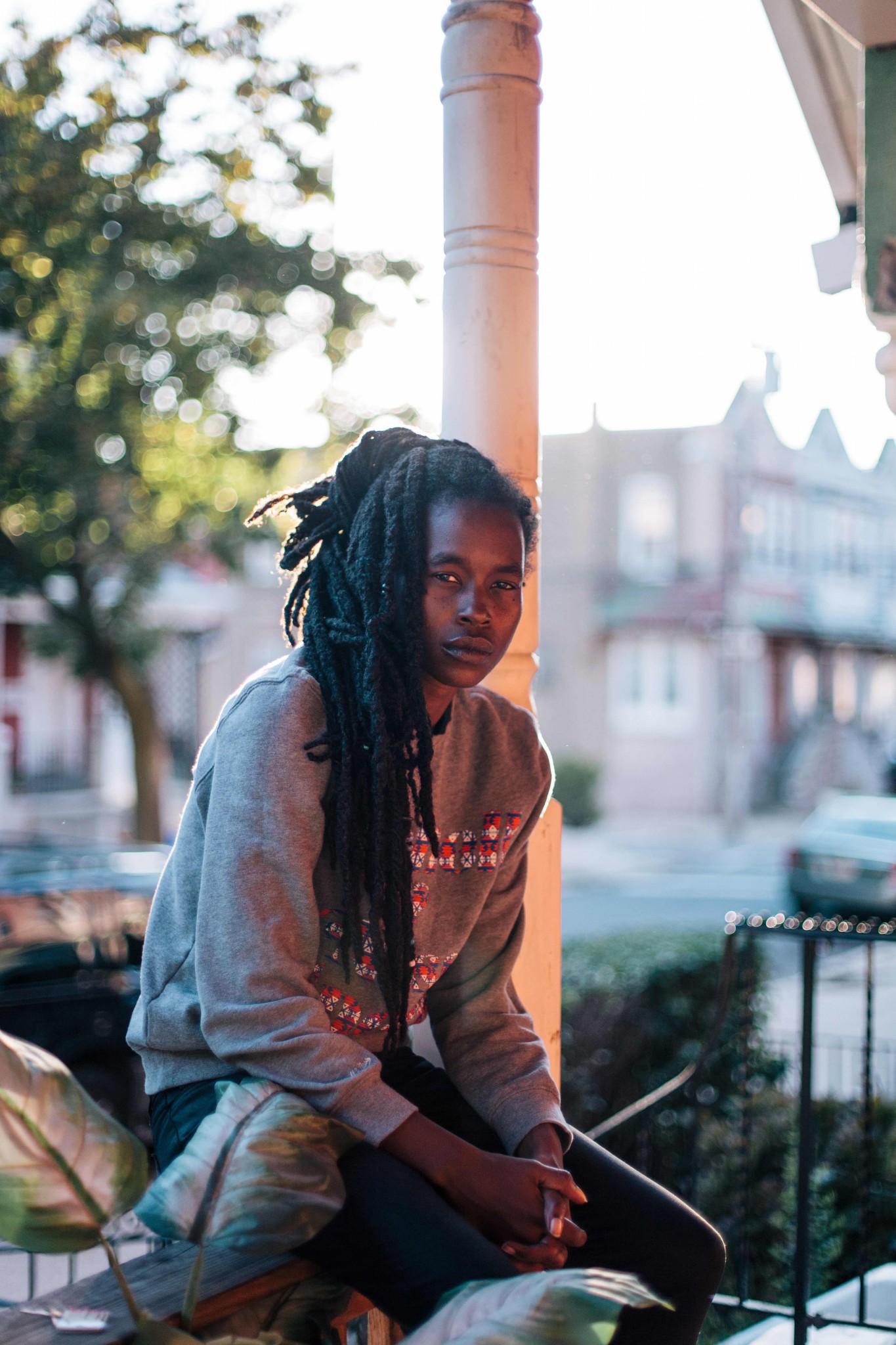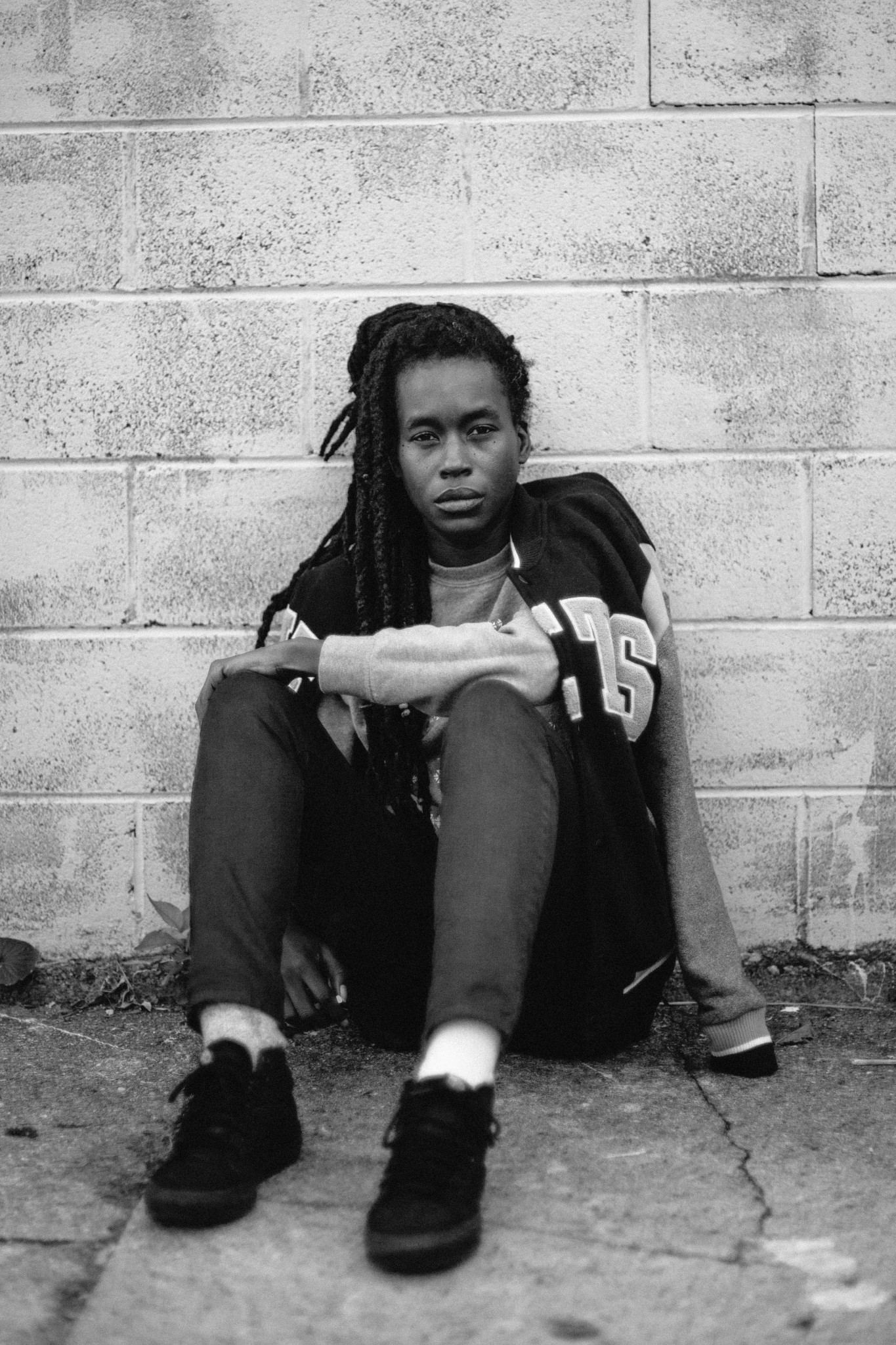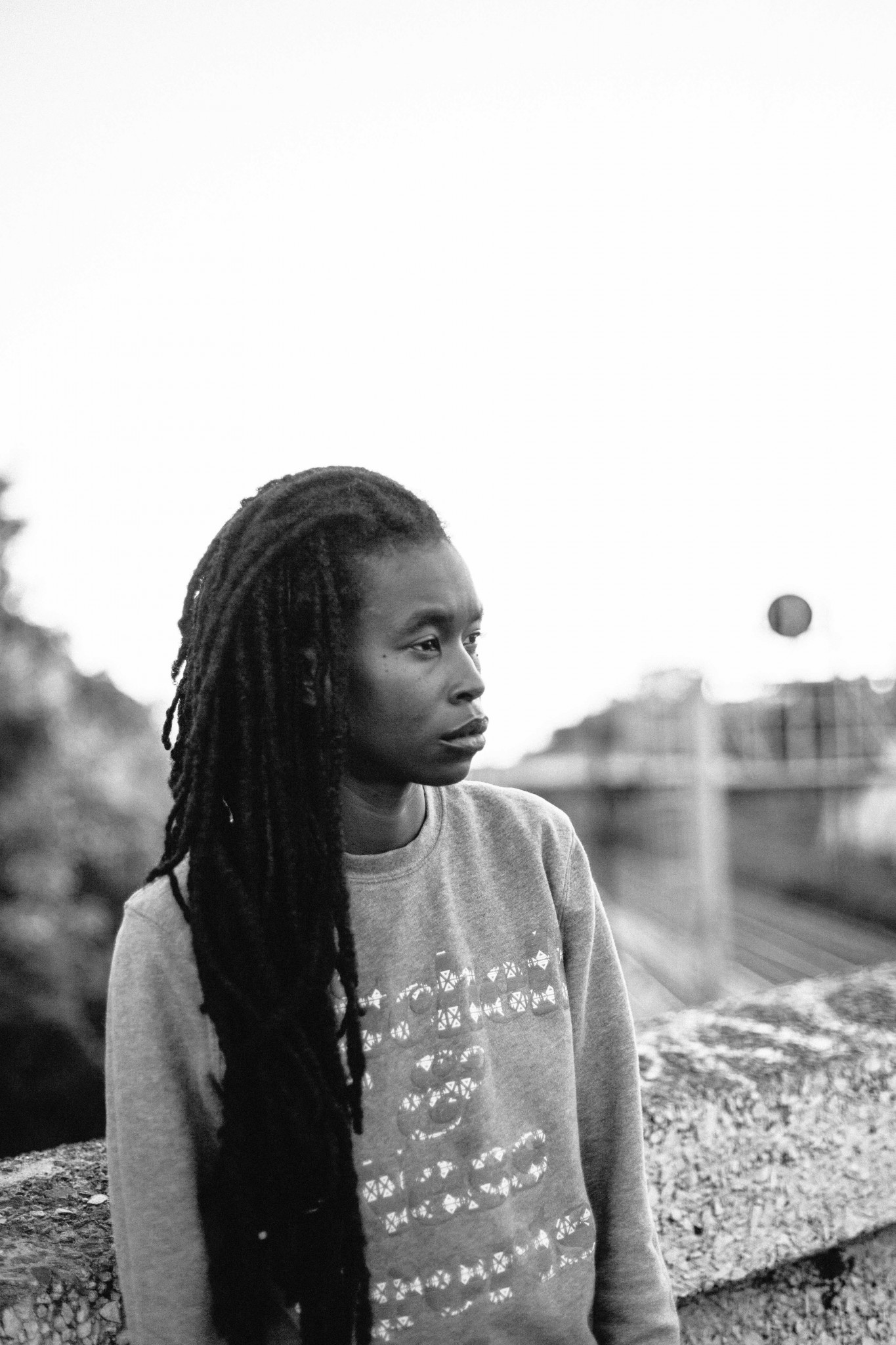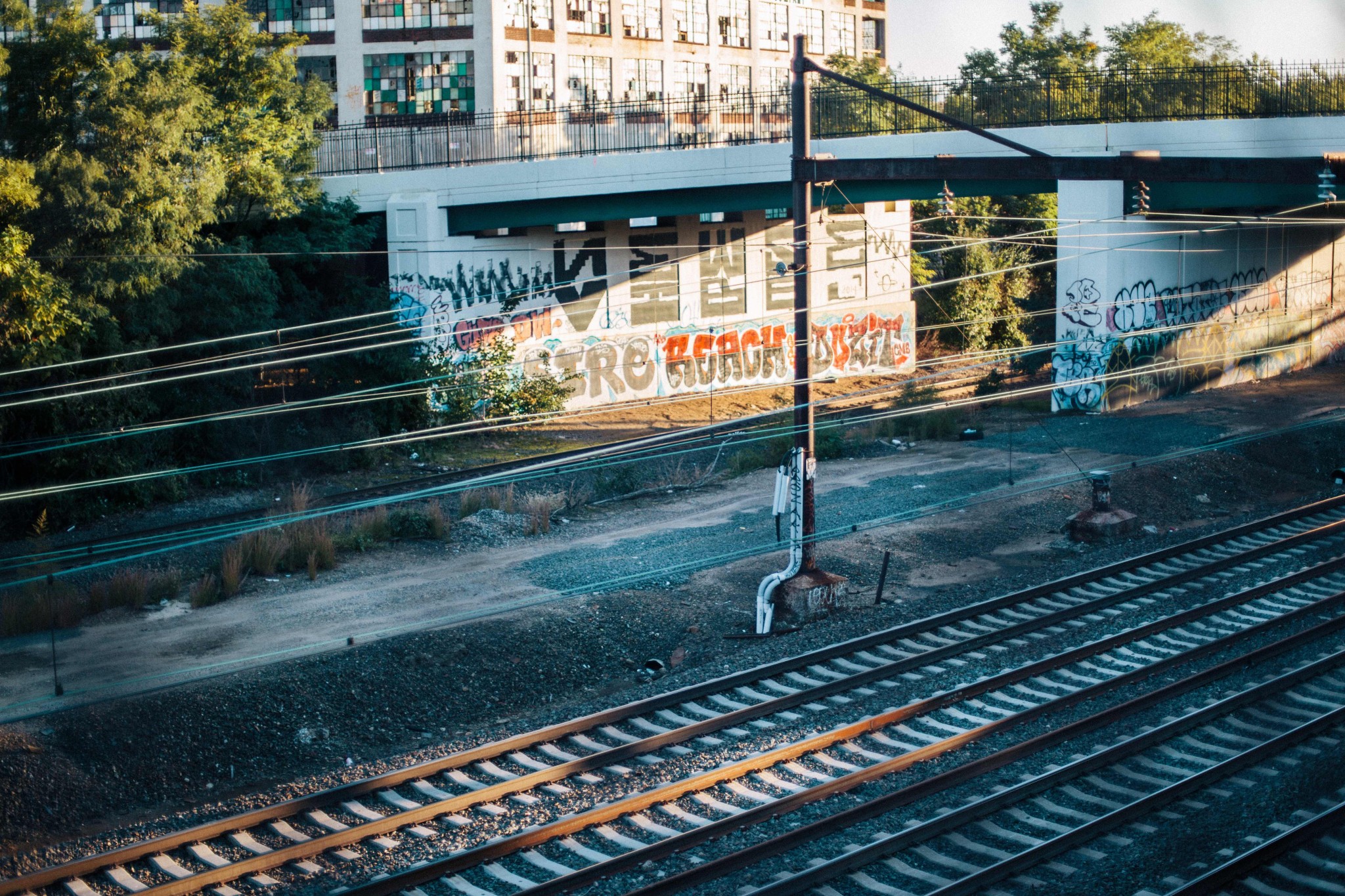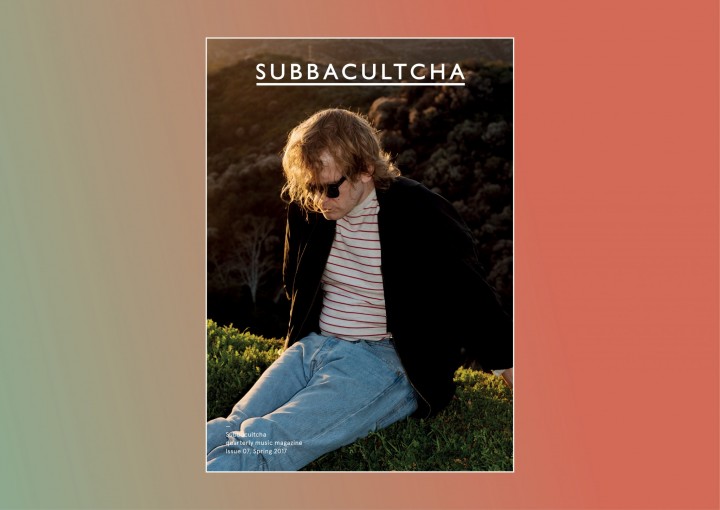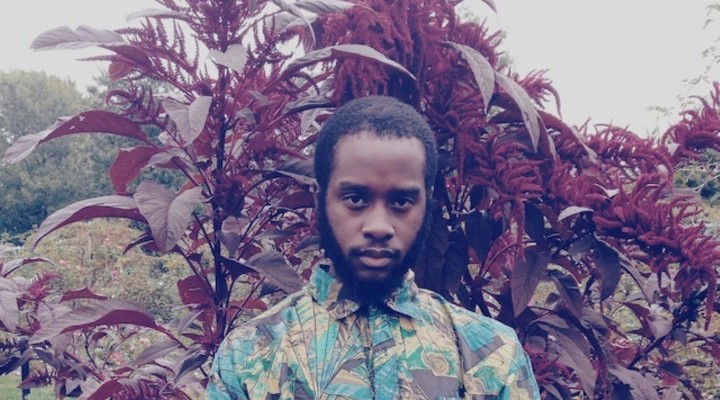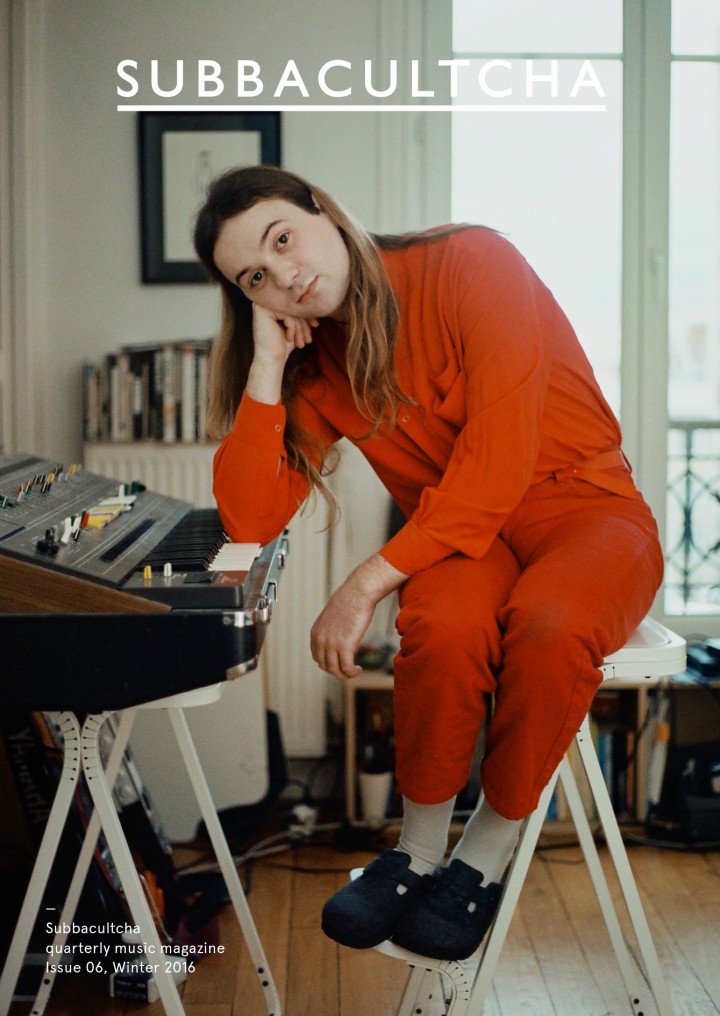Moor Mother
Phone Interview by Zofia Ciechowska
Photos taken by CJ Harvey in Philadelphia, USA
Moor Mother’s music exists in the moment, spread through word of mouth, a passing on of Afrofuturist history lessons of ancestors past and future descendants, rolling waves of broken beats, punk stutters and noise. It’s the project of Maryland-born, Philadelphia-based musician, poet, activist, teacher, organizer and curator, Camae Ayewa. Spawned from the urgency to amplify the erased pain of those whose cries remain unheard, Moor Mother is the musical expression of the community work that Ayewa has been pushing for years in North Philly’s neighborhoods. It’s this community work that enables her to reach new audiences with her protest songs. Community work, she believes, should lie at the core of every musician’s practice.
Fetish Bones is the latest release in Moor Mother’s already superabundant output, the self-recorded LP that she’s now taking on tour to spread through her roaring live performance. ‘I don’t want to just tell my stories on the Internet. I have a lot to say, and my particular perspective is not often shown,’ she explains, highlighting the lengths she’s gone to to be heard as a black woman artist, raised in poverty and looming social injustice. ‘I’m looking for people who want to listen to music that isn’t just about makeup and sex.’
Where’s your head at as you’re on the cusp of your autumn tour?
My main concern is being in places I’ve never been before and sharing the subject matter that I use. I’m going to Nebraska, for example. How careful do I need to be there? And I don’t just think about that now, I think about that all the time, because I’m a black women speaking out. You know, most of the black women making music that I know who have been speaking up have had more wealth than I have. You need to understand my heightened awareness. Most of the black women making music who are touring nationally or internationally come from more privileged backgrounds than me. I’m actually speaking from my personal, true perspective. I actually grew up poor and I have family members who have been incarcerated. I’m speaking from this first hand perspective that a lot of black women don’t get to share. Men can tell their stories in that particular way, but black women cannot.
Do you think people are now more willing to experience women’s anger than before?
Women have always been angry. Women’s anger is often a commodity. It’s just a certain type of woman who is allowed to get angry right now. In the US, every 15 seconds a woman is attacked in her home by someone who loves her. This is happening around the clock and no one is saying anything! Whose anger are we talking about? I talk about positive anger.
It’s just wild that class is not discussed in the context of art and music making
You mentioned that your voice as a black woman is different to the mainstream voices of the black women we often hear. You being able to express yourself creatively speaks so much. What needs to happen for more women like you to do what you’re doing?
Discussions of class need to happen. No one talks about class. Take for instance, Solange. How long has Solange been rich? Her sister was in Destiny’s Child at 15. She grew up exposed to wealth and fame, reaped those rewards. What’s that perspective? How does class play into who she is as a person, the album she made, the black issues she discusses? People talk about Bernie Sanders marching in Washington. People say they marched in Ferguson. What does that mean, that you had the means to go there and march? That you’re dedicated to the struggle? I am not speaking ill of people with money, it’s just wild that class is not discussed in the context of art and music making. It’s so expensive to be a musician. Even this tour I’m going on, I need money to be able to go on tour. Some people can just go and perform; they have a safety net.
How has this year particularly shaped your art practice, music and activist work?
I’m surprised to find out that a lot of musicians have zero community work, they have people just booking their shows that they then go to perform. I’m meeting people who are not booking their own shows to play with other artists in their own communities. They won’t book a spot at a community space, won’t go into a high school. It baffles me how little community work they do. They are more comfortable inside their studio, rather than being out in the world.
Do you believe your music comes to life when it directly engages with the community? Where should we be organizing and performing music?
I think we’re doing the best we can. There’s a drumming circle near my house. There’s house shows near me. I love all types of places. Most stuff happens in West Philly. North Philly is a little more dangerous, way more poor, not many shows happen in this area. So, what do we do? Do we go to the safe hippie spaces? Or do we go where people are struggling? It’s a tough one. We have to look at people’s struggle. We need to be aware that some people’s expiration date is coming really soon. Artists need to do more to raise awareness about this and engage – stop hiding behind buzzwords and online identities.
What have you heard from your audiences after the release of your Fetish Bones LP?
People have been so nice, appreciative, and supportive. I had no idea I had so many fans overseas. It’s been really good. I am shocked people know about me! It’s the Internet, I guess! The other week I had a bit of a Facebook to-and-fro with someone about the fact that they wouldn’t have known me without the Internet, but my response was, I’m not just on the Internet. I’m more off the Internet than on. I don’t need to go online and brag that I did a workshop in a high school, that I worked at a shelter. I don’t need to brag about my work, it’s not part of my brand, it’s just in my neighborhood, it’s what I do.
With all respect to the Internet, it could all blow up and I could be very happy
I’m also a writer, I have published books. So if you read books and are interested in Afrofuturism and poetry, you’ll find me. With all respect to the Internet, it could all blow up and I could be very happy.
There’s a live element to your performance that makes your music come to its own that’s not fully there in your recordings.
I’m like the coolest live compared with my recordings! Fetish Bones came out of the fact that I won a grant that helped me buy equipment. I had to learn how to record my album all on my own. Making an album by yourself and googling stuff you don’t know is hard. I cried a lot. But I did it, so that’s cool! I don’t like people recording me live because it never captures what’s happening. Just experience it; if your friends aren’t there, tell them to come next time.
Moor Mother plays World Minimal Music Festival at Muziekgebouw 5 April. Fetish Bones came out on Don Giovanni Records on 16 September, 2016.
